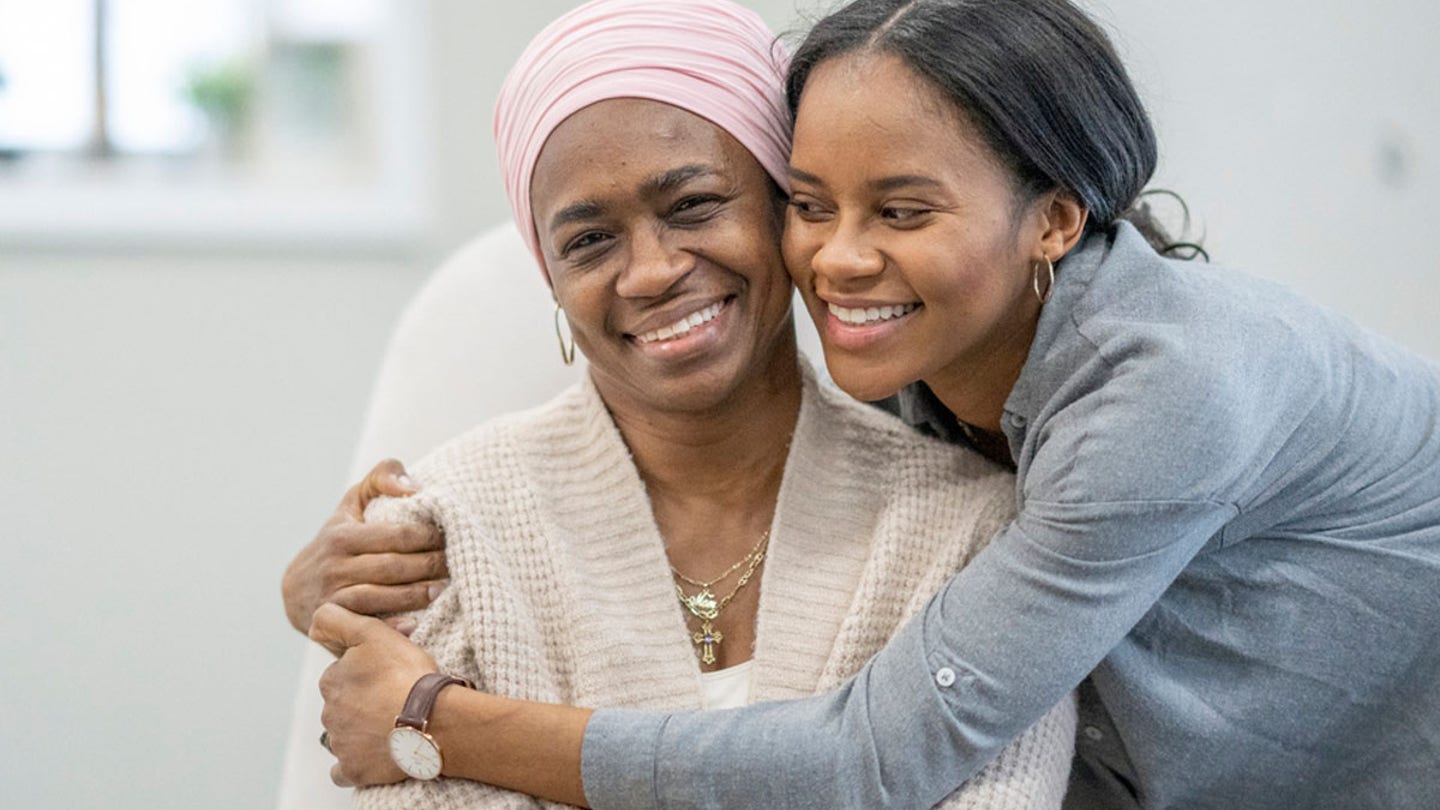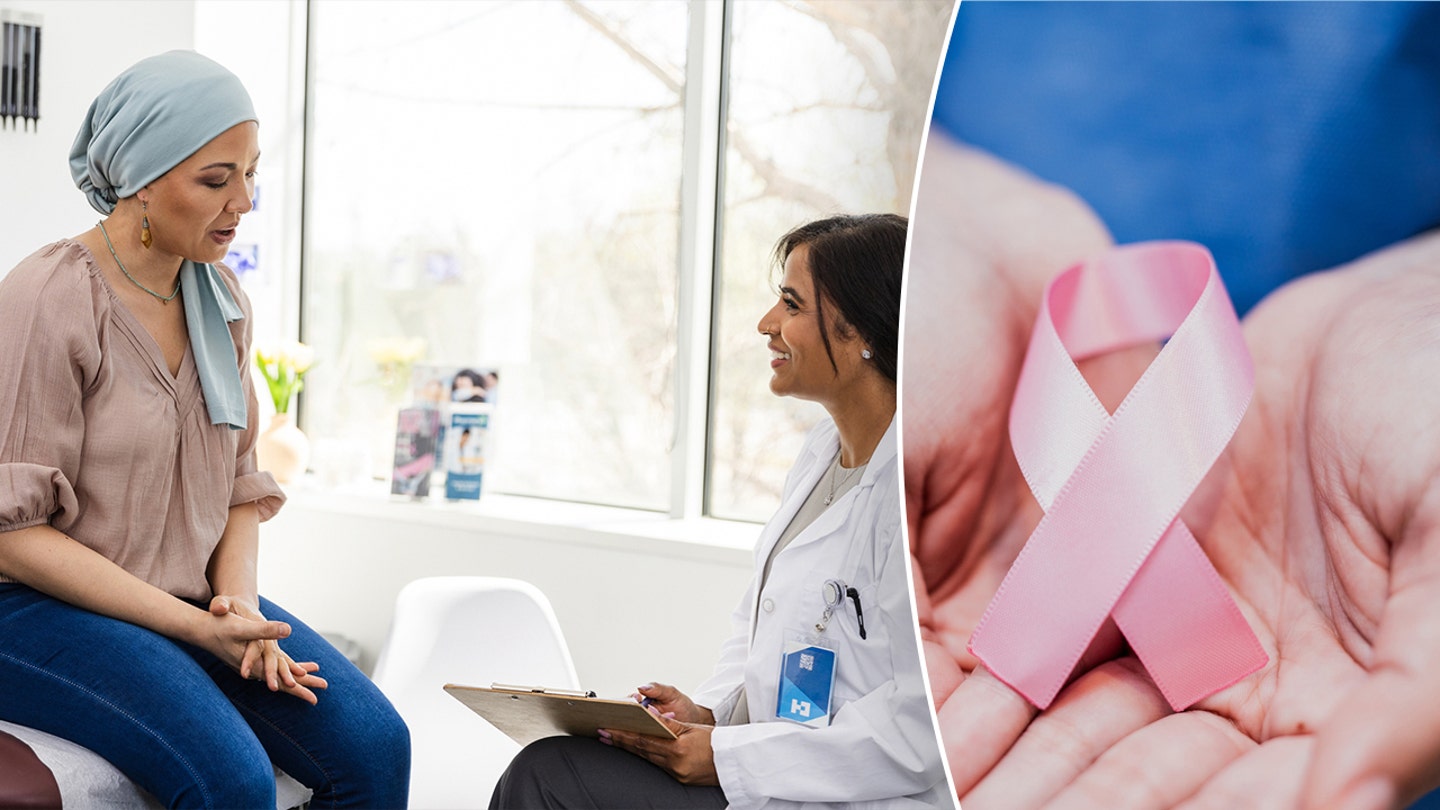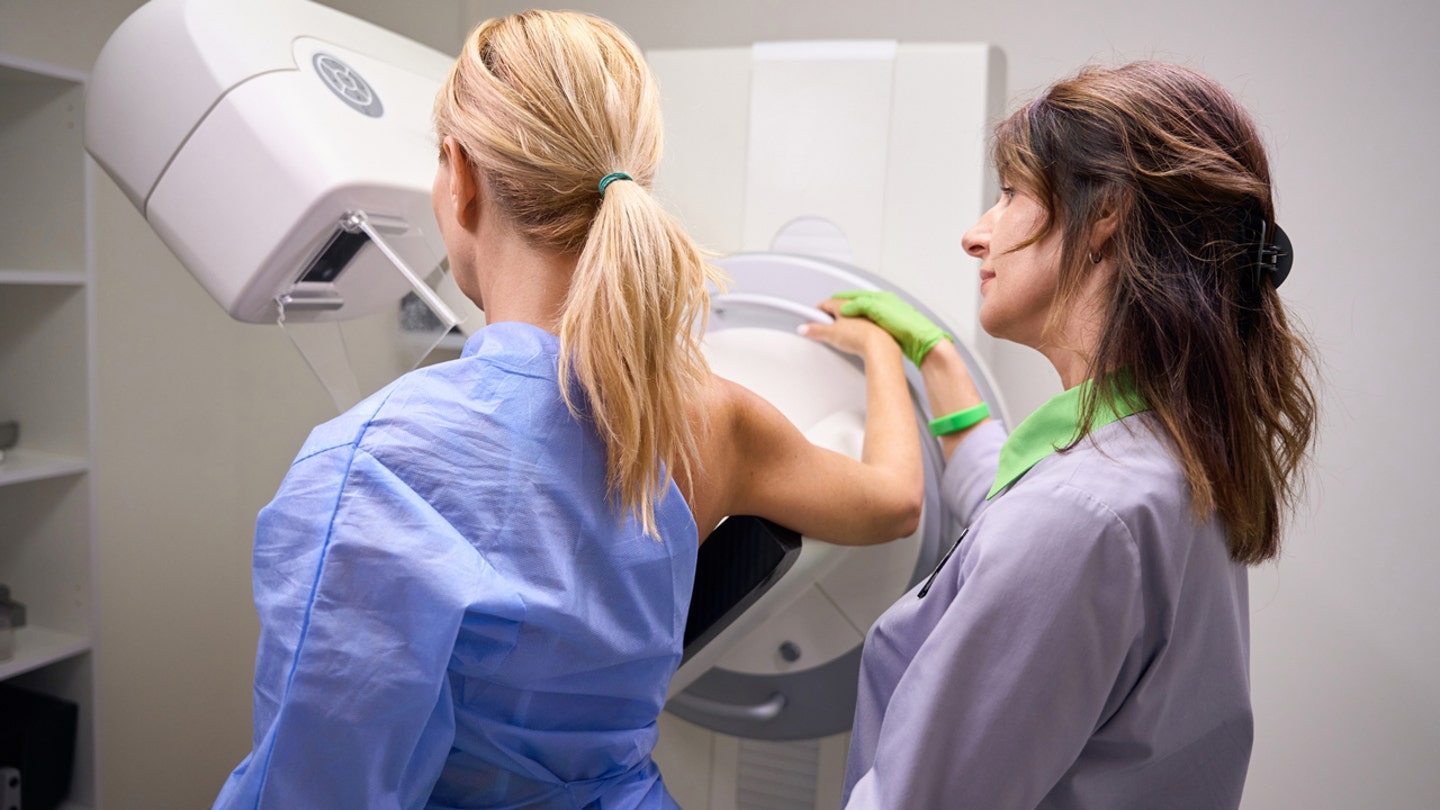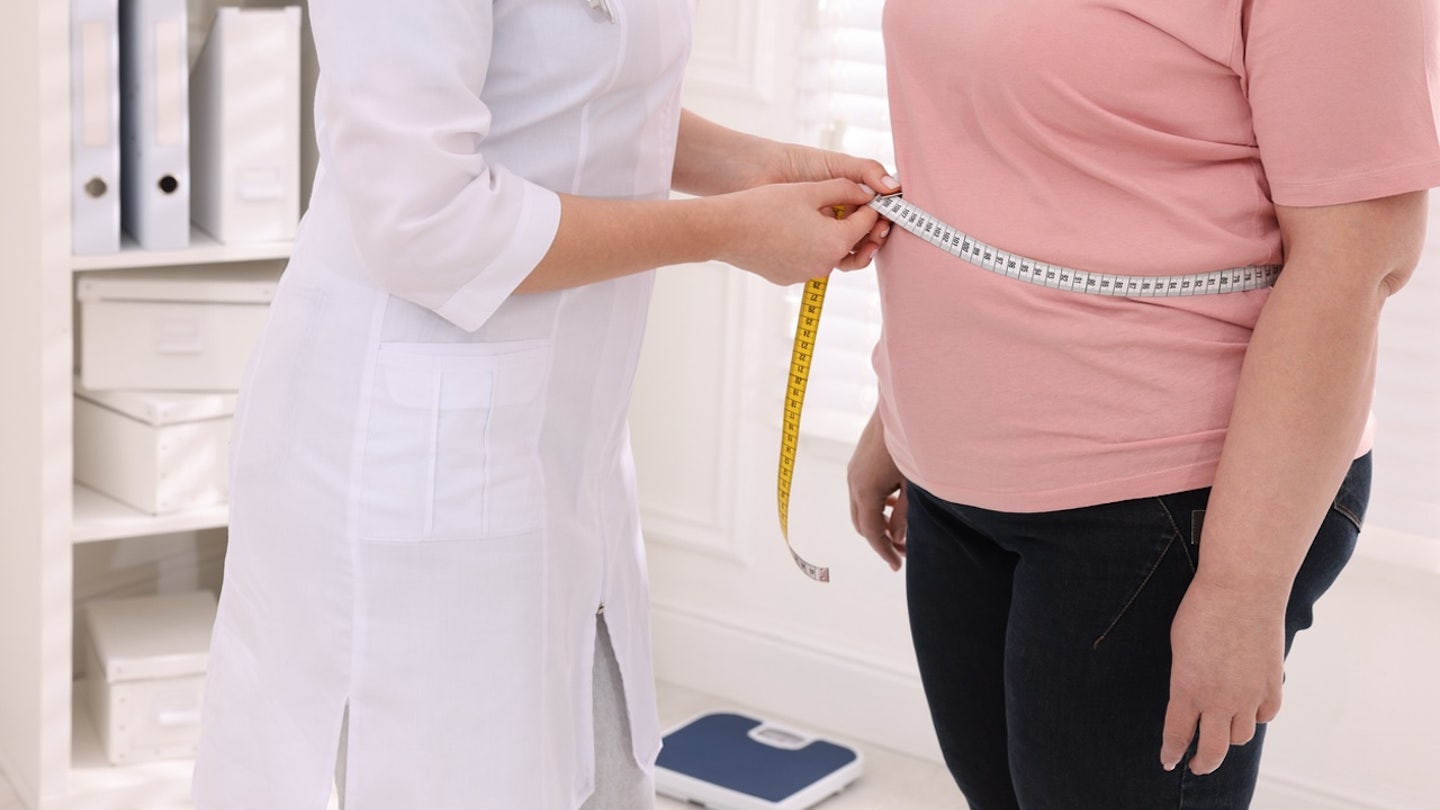Although breast cancer deaths have been declining for decades in the U.S., diagnoses have been on the uptick among women 50 and younger.
That’s according to a new report from the American Cancer Society (ACS) — Breast Cancer Statistics, 2024.
The good news is that since 1989, breast cancer mortality has declined overall by 44% — but diagnoses of the disease have been rising by 1% each year between 2012 and 2021.
BREAST CANCER SCREENINGS MAY DECLINE FOR WOMEN WHO RECEIVE FALSE-POSITIVE TEST RESULTS, SAYS STUDY
The biggest spike was seen among women younger than 50 (1.4% per year) and Asian-American/Pacific-Islander women (up to 2.7% per year), the report revealed.
The findings were published in CA: A Cancer Journal for Clinicians.
Although breast cancer deaths have been declining for decades in the U.S., diagnoses have been on the uptick among women 50 and younger. (iStock)
“Although the breast cancer death rate has declined by 44% thanks to advances in early detection and treatment, the continued increase in breast cancer incidence may slow progress in the future,” lead author Angela Giaquinto, associate scientist in cancer surveillance research at the ACS, told Fox News Digital.
That is especially the case among women younger than 50, she said, whose rates are increasing by 1.4% per year compared to 0.7% per year in older women.
THESE 17 CANCER TYPES ARE MORE COMMON IN GEN X AND MILLENNIALS, AS STUDY NOTES ‘ALARMING TREND’
Dr. William Dahut, chief scientific officer at the ACS, noted that women are “a lot less likely” to die from breast cancer, but that “alarming disparities” still remain — particularly for Asian-American, Pacific Islander, Native American and Black women.
“These gaps need to be rectified through systematic efforts to ensure access to high-quality screening and treatment for every woman,” he said in the release.

Women are “a lot less likely” to die from breast cancer, but that “alarming disparities” still remain — particularly for Asian-American, Pacific Islander, Native American and Black women, a researcher noted. (iStock)
The report compiled cancer data from the National Cancer Institute’s Surveillance, Epidemiology, and End Results (SEER) program, the Centers for Disease Control and Prevention’s National Program of Cancer Registries (NPCR), and the National Center for Health Statistics.
Second only to skin cancer, breast cancer is the most prevalent cancer among women.
“The reasons for the increased prevalence in breast cancer in younger patients is complicated, multifaceted and still being studied.”
This year, approximately 310,720 women will be diagnosed with invasive breast cancer and around 42,250 will die from the disease, according to the ACS.
“The increased prevalence of breast cancer is not only an issue in the U.S. — we are seeing similar trends in other countries as well,” Dr. Christopher McGreevy, associate chief of breast surgery at Hackensack University Medical Center in New Jersey, told Fox News Digital.
Potential reasons for the younger trend
“The reasons for the increased prevalence of breast cancer in younger patients are complicated, multifaceted and still being studied,” said McGreevy, who was not involved in the report.
SENIORS AND BREAST CANCER: WHY AREN’T OLDER WOMEN TOLD TO GET MAMMOGRAMS?
One reason for early-onset breast cancer is that more patients are obese, the doctor noted.
“Excess weight, particularly after menopause, fuels estrogen production, a key driver of certain breast cancers,” he said.

The best means of prevention is to talk to your doctor about getting screened, according to researchers. (iStock)
Delayed childbearing can also increase the onset of the disease, McGreevy noted, as pregnancy reduces women’s breast cancer risk.
“Environmental toxins, lurking in everything from plastics to pesticides, are also suspected contributors,” he said.
CLICK HERE TO GET THE FOX NEWS APP
“These endocrine disruptors mimic estrogen in the body, potentially triggering abnormal cell growth.”
Genetics could also factor into the uptick, according to the doctor.

The rise among younger women could also be a consequence of the COVID-19 pandemic, fueled by delayed diagnoses due to interruptions in screening, according to the researchers. (iStock)
“Certain gene mutations, like BRCA1 and BRCA2, significantly elevate the risk of breast cancer, even at a young age,” he said.
The rise among younger women could also be a consequence of the COVID-19 pandemic, fueled by delayed diagnoses due to interruptions in screening, according to the researchers.
Potential limitations
There were some limitations associated with the study, the researchers acknowledged.
“The risk and trends in the study are for all women and are not able to account for individual patient characteristics, such as comorbidities or treatment received, or control for social determinants of health, such as insurance status,” Giaquinto told Fox News Digital.
CLICK HERE TO SIGN UP FOR OUR HEALTH NEWSLETTER
“We also present statistics for the broadly defined racial and ethnic groups, which mask substantial differences within these populations.”
Prevention tips
The best means of prevention is to talk to your doctor about getting screened, according to Giaquinto.
“Early detection of breast cancer is one of the best tools we have for improving survival,” she told Fox News Digital.

“Women can also reduce their risk of breast cancer by moderating alcohol consumption if they drink, maintaining a healthy body weight and being physically active,” the researcher advised. (iStock)
“All women should keep up to date with their recommended breast cancer screenings. This is especially relevant for younger women, as the recommended age of the United States Preventive Services Task Force was recently dropped to age 40.”
Women should also be aware of their family history and personal risk factors, Giaquinto added.
For more Health articles, visit www.foxnews.com/health
“Women can also reduce their risk of breast cancer by moderating alcohol consumption if they drink, maintaining a healthy body weight and being physically active,” the researcher advised.
“About 30% of all breast cancers are attributed to these lifestyle factors.”
